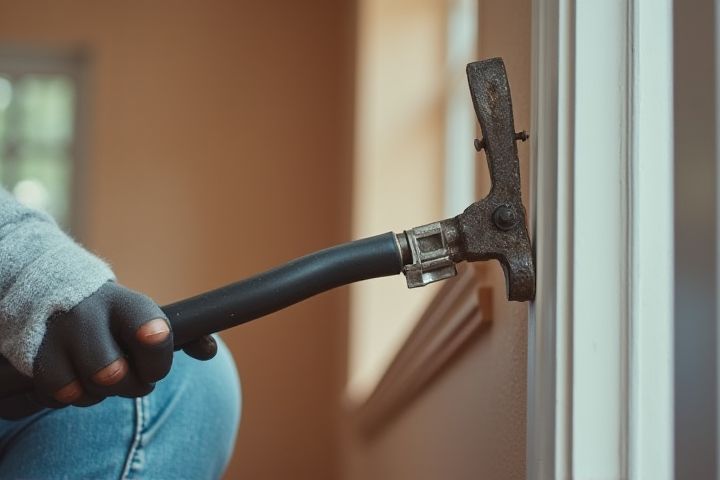
Home repairs are typically managed by professionals such as general contractors, handymen, or specialized tradespeople like electricians and plumbers. Depending on the nature and complexity of the repair, homeowners may hire a licensed technician to address specific issues such as HVAC problems or roof leaks. For minor tasks like painting or assembling furniture, you might consider a handyman service, which can often provide quick and cost-effective solutions. When selecting someone for house repairs, verify their credentials and reviews to ensure quality workmanship. Understanding your repair needs will help you choose the right professional for the job.
Who Handles House Repairs
Property Manager
A property manager is crucial for overseeing house repairs, ensuring that issues are addressed promptly and efficiently. They coordinate with qualified contractors, manage repair budgets, and schedule maintenance work, resulting in minimized downtime for tenants. Their expertise allows them to effectively communicate with service providers and keep property owners informed about necessary repairs and costs. By handling these tasks, a property manager helps preserve the property's value and enhances tenant satisfaction.
Landlord
In rental agreements, the landlord is typically responsible for the maintenance and repairs of the property, ensuring that it remains safe and habitable. This includes addressing issues such as plumbing leaks, electrical problems, and structural damages within a reasonable timeframe. It's essential to document any repair requests and communication, as this may help resolve disputes or clarify responsibilities. Tenants should know that their proactive engagement with landlords can lead to prompt and effective repairs, ultimately benefiting both parties.
Tenant (depending on lease)
In rental agreements, the responsibility for house repairs typically falls on the landlord, but specific terms can vary depending on your lease. For instance, if the lease includes a clause that states you are responsible for minor repairs or maintenance, you may need to handle issues like changing light bulbs or unclogging drains. Major repairs, such as plumbing issues or structural problems, are generally the landlord's responsibility. Always refer to your lease agreement for clear guidelines on what repairs you need to manage and what the landlord is obliged to take care of.
Homeowner
Homeowners typically manage house repairs by assessing needs and determining whether to tackle tasks themselves or hire professionals. Key repairs often include plumbing issues, electrical work, and roofing, with the average cost of hiring a handyman ranging from $50 to $100 per hour. DIY repairs can save money, but homeowners should have the necessary skills and tools for tasks like painting or minor carpentry. Keeping track of repair records and receipts can help build equity and maintain property value over time.
Maintenance Staff
Maintenance staff are essential for managing house repairs, ensuring that various systems--such as plumbing, electrical, and HVAC--function efficiently. Typically, a maintenance team consists of skilled technicians who respond to urgent repair requests, conduct routine inspections, and perform preventative maintenance to avert potential issues. Research indicates that regular maintenance can reduce repair costs by up to 30%, providing significant savings for homeowners. By collaborating with maintenance staff, you can ensure your home remains safe and operational while also extending the life of its essential systems.
Handyman
A handyman is a skilled tradesperson who specializes in a wide range of home repair and maintenance tasks, including plumbing, electrical work, carpentry, and painting. Typically, handymen charge between $50 to $100 per hour, depending on their experience and the complexity of the job. Hiring a handyman can save you time and money on minor repairs, as they often complete tasks more efficiently than specialized contractors for small jobs. For homeowners, having a reliable handyman on call can significantly ease the burden of maintaining your property.
Contractor
A contractor is a licensed professional responsible for managing and executing house repairs, renovations, and new construction projects. Specializing in various trades, contractors coordinate all aspects of repair work, including plumbing, electrical, and carpentry tasks. Typically, contractors obtain necessary permits and ensure compliance with building codes, thus safeguarding your investment. Depending on the complexity of the job, the average contractor charges between $50 to $150 per hour, highlighting the importance of selecting a qualified individual for your repair needs.
Home Warranty Provider
A home warranty provider is responsible for managing house repairs by offering coverage for essential home systems and appliances, such as HVAC units, plumbing, and electrical systems. For an average annual cost of $300 to $600, homeowners can secure peace of mind knowing that unexpected repairs won't strain their finances significantly. When a covered issue arises, you can submit a service request through your provider, who will then dispatch a licensed technician to assess and resolve the problem. This streamlined process allows you to efficiently maintain your home's functionality while avoiding hefty out-of-pocket expenses.
Building Superintendent
A Building Superintendent is typically responsible for overseeing house repairs and maintenance within a residential building. Their duties include coordinating repair tasks, addressing tenant concerns, and supervising maintenance staff to ensure safety and efficiency. You can rely on a Building Superintendent to manage everything from plumbing issues to electrical repairs, ensuring that your living environment remains comfortable and functional. Their expertise in building systems and problem-solving abilities make them an essential asset in maintaining the property's overall condition.
Insurance Company
Your insurance company typically manages house repairs through a process that starts with filing a claim after damage occurs. Upon approval, they often partner with a network of licensed contractors to ensure quality service and compliance with local building codes. Adjusters may assess the damage to determine the extent of coverage and facilitate repair costs. It is essential to understand your policy's details, as specific damages may have different deductible requirements or coverage limits.
